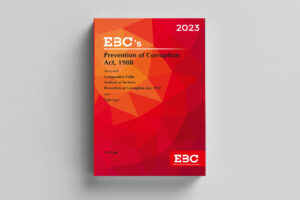Delhi High Court: In a plea filed by Directorate of Enforcement (‘ED’) challenging the bail granted to Delhi Chief Minister Arvind Kejriwal by the Rouse Avenue Court on 20-06-2024, Sudhir Kumar Jain, J., imposed a stay on the bail, and stated that the Trial Court while passing the impugned order did not appropriately appreciate the material/documents submitted on record and pleas taken by ED and the averments/grounds as raised in the petition under Section 439(2) of the Code of Criminal Procedure, 1973 (‘the Code’) require serious consideration while dealing with said petition.
Background:
Arvind Kejriwal was arrested by the ED at his residence in connection with the Delhi Excise Policy case on 21-03-2024, after the Delhi High Court refused to grant interim protection to Arvind Kejriwal. The Rouse Avenue District Court granted custody of Delhi Chief Minister Arvind Kejriwal to ED till 28-03-2024. The ED had registered Enforcement Case Information Report (ECIR) on 22-08-2022 pursuant to registration of the predicate offences by the Central Bureau of Investigation on 17-08-2022 under Section 120-B read with Section 447-A of the Penal Code, 1860 and Section 7 of the Prevention of Corruption Act, 1988. ED’s investigation had revealed that K Kavitha MLC, Telangana Legislative Council along with others conspired with the top leaders of Aam Aadmi Party (AAP) including Kejriwal and Manish Sisodia for getting favours in the Delhi Excise policy-formulation and implementation. It was alleged that in exchange for these favours, K Kavitha paid an amount of Rs. 100 Crore to the leaders of AAP.
On 20-06-2024, the Delhi Court granted bail to Kejriwal in the money laundering case connected to the alleged Delhi Excise liquor policy scam.
On 21-06-2024, the Court reserved the order on Kejriwal’s bail, after ED said that they were not given a clear opportunity to oppose the bail.
On 24-06-2024, the Supreme Court Vacation Bench, in a Special leave petition (Criminal) against the Delhi High Court’s order, imposing an interim stay on the bail, adjourned the petition for 26-06-2024. However, it was viewed that in stay matters, Judgements are not reserved but passed on the spot.
Contentions:
The petitioner submitted that, the Vacation Judge had not given an opportunity of being heard to ED to oppose the bail application filed by the respondent. The Vacation Judge also took a contrary view of judgement dated 09-04-2024 by this Court which was binding on the Vacation Judge also.
The petitioner further submitted that, the Vacation Judge had not considered vicarious liability under Section 70(1) of the Prevention of Money Laundering Act, 2002 (‘PMLA’) as the political party AAP was found guilty of utilizing Rs. 45 crores of fund gathered from money laundering, for election campaign of Goa General Assembly Election 2022.
The respondent then submitted that, the judgement of 09-04-2024 was not decided on merits of the case but to only deal with the arrest of the respondent under Section 19 of PMLA. While referring to Arvind Kejriwal v. Directorate of Enforcement SLP (Crl) 5154/2024, the Supreme Court had granted leave to the respondent against the judgement dated 09-04-2024 and later the Court granted Kejriwal an Interim Bail.
The respondent then referred to para. 24 of impugned, wherein the Vacation Judge observed that the ED failed to clarify the time which was required to trace the complete money trail particularly the remaining Rs. 60 crores, and until the exercise of tracing out of remaining amount was completed by ED, the respondent cannot be supposed to remain behind bars.
The Vacation Judge in the impugned order observed that the respondent was neither named in Regular Case (‘RC’) filed by Central Bureau of Investigation (‘CBI’) nor in Enforcement Case Information Report (‘ECIR’) filed by ED and allegations against the respondent surfaced on account of subsequent statements of certain accused persons. The Vacation Judge also observed that the respondent was in custody at instance of ED on pretext of ongoing investigation despite he was not summoned by the Court. The petitioner argued that the observation of the Vacation Judge in impugned order was not legally tenable.
Analysis:
The Court after perusal of facts and contentions that, the Vacation Judge while passing the impugned order did not appropriately appreciate the material/documents submitted on record and pleas taken by ED and the averments/grounds as raised in the petition under section 439(2) of the Code require serious consideration while dealing with said petition. Accordingly, the present application was allowed, and the operation of the impugned order was stayed.
The matter was listed on 10-07-2024 before the Roster Bench
[Directorate of Enforcement v. Arvind Kejriwal, 2024 SCC OnLine Del 4421, dated on: 25-06-2024]
Advocates who appeared in this case :
For Petitioner: S.V. Raju, ASG with Zoheb Hossain, Special Counsel for ED along with Anam Venkatesh, Vivek Gurnani, Abhi Priya, Dipanshu Gaba, Shweta Desai, Bhanupriya, AD, S.K. Sharma, AD/IO and Gaurav Saini, ALA
For Respondent: Abhishek Manu Singhvi, Senior Advocate with Vikram Chaudhari, Senior Advocate, Vivek Jain, Irshad, Karan Sharma, Rishikesh Kumar, Mohit Siwach, Sadiq Noor, Kaustubh Sandhu, Hargun Sandhu, Nikita Gill and Rajat Jain, Advocates.









